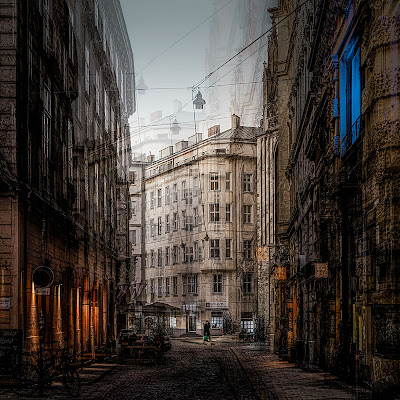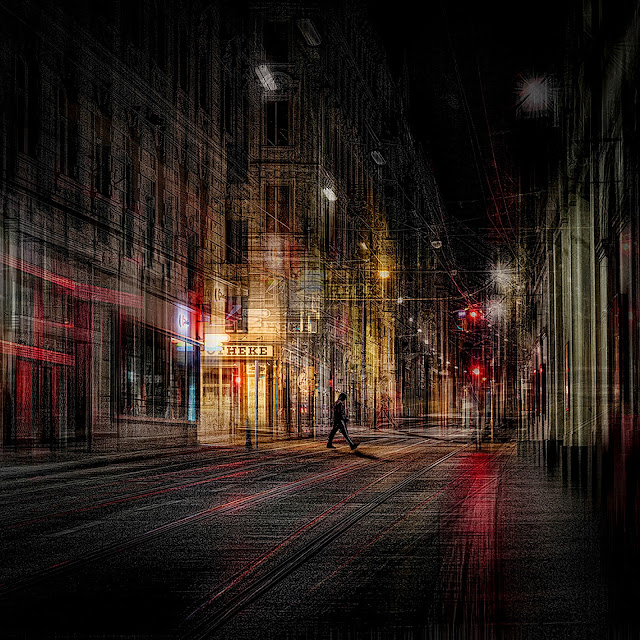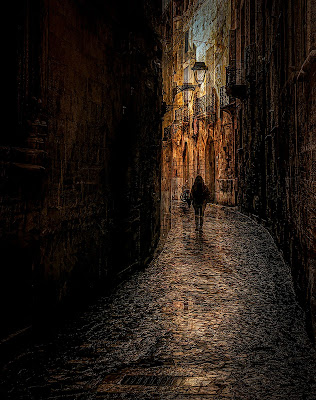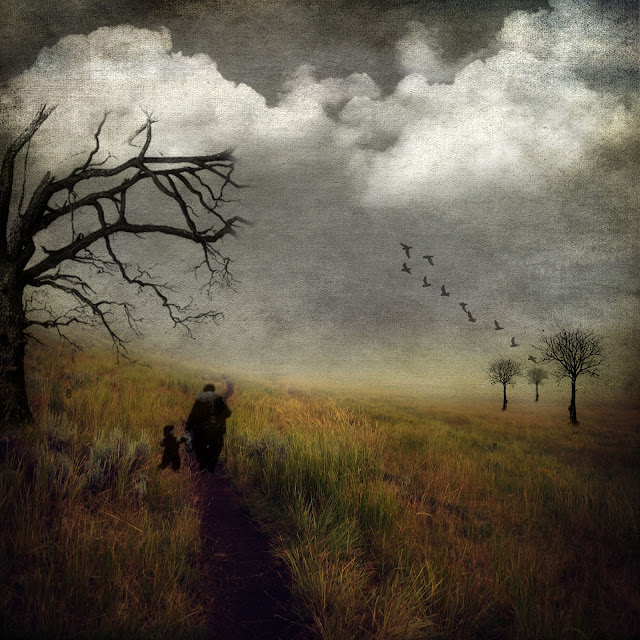Interview with artist Gus
Gus was born in a small village in the north of Spain but now he lives in the Balearic Islands. Since he was very young, photography and art have always attracted him, he grew up seeing and reading books and works of great artists; Cartier-Bresson, Adams, magnificent impressionist painters.


Who influences your art and photographic style?
It is difficult to specify, perhaps the greatest influence is from my youth and see the books that were in my house of great artists, Cartier-Breson, Van Gogh, Picasso, Dali ... and many others, was an encyclopedia that my parents had and I saw again and again and I imagined doing or creating these imaginary worlds or those magnificent photographs.
My readings, documentaries or things that I see in my reality and the world around me, also lead me to imagine things that I try to represent.
How did you start painting? What led you to the fine arts?
I started painting at school as a child, it was a compulsory subject, but I was very bad at it, it was horrible, at home I tried to copy drawings of great artists and sometimes I got something decent, but I have always been a bad drawer or painter, even today, when I sketch some of the creative work I do, from sketch to creation nobody would say that that sketch was my idea and that's where the work came from.
Why do you consider that human beings are a fundamental part of the environment?
It is obvious, the human being makes and breaks his whims on the earth, on our planet, unfortunately, in my opinion, not always with wisdom and good judgment, too much emphasis is placed on the economy and not to care for our planet. Deforestation, thawing, global warming and so many other things are all caused by human beings, humans who do not think about the future of our children, of our planet.
On the other hand there is the man protagonist of his reality, of that micro-world in which we all live, with his dreams, his joys and his sorrows. We humans are always present in practically anything that happens in our world, be it good or bad (bad in my personal opinion). And this anonymous human being, deserves a recognition that I try to give him by including him many times in my works.
How do you overcome the obstacles in your artistic process?
If by obstacles you mean the lack of motivation or the creative "bottleneck", I leave what I'm doing and go do something else, I just save the file and leave it, maybe I'll start reading, or see something in a documentary, or a simple walk makes me think about what to modify or how to get to what I was looking for. Sometimes days go by until I manage to finish a job because I don't find or am not comfortable with what I see.
If it is to the technical part, to read and to learn much seeing videotutorial, doing courses, seeing works of other artists, etc. The technique is obtained with time and effort, the idea has to come to her, you cannot look for it she comes to you when you least expect it, habitually when something occurs to me I take notes not to forget.
What do you mean by your definition of "dream catcher"?
It's a term that a friend gave me one day and I really liked the way he explained it to me and why. He meant, and he is right, that my mind is always imagining things, sometimes they are situations that can occur in real life, others not, are completely surreal, when I move to my work, that idea, dream, illusion, I get to stay forever save, represented and never forget it. It's horrible to get up in the morning and ten minutes later not remember what you dreamed, equally would be, have an idea, illusion or a dream and not save it to never forget it, "hunt that dream" forever and to see it again and again. Many of my works, today, I would not be able to remember them if I had not created them.
More info:
Website: https://www.gusfineart.es







